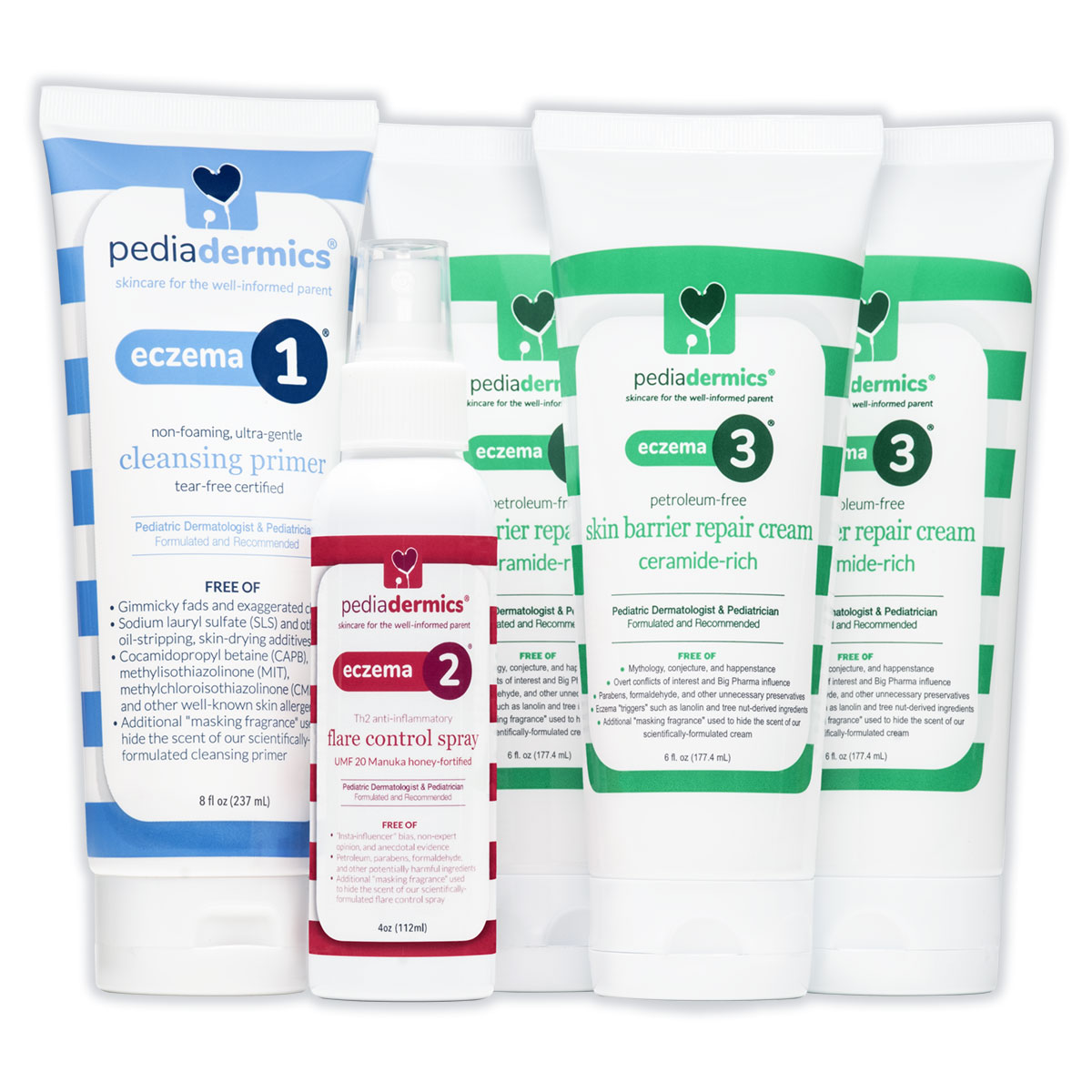Eczema 101
Featured Articles on Eczema from Dr. K's Podcast
Scratch that Thought: The Role of Antihistamines in the Management of Eczema
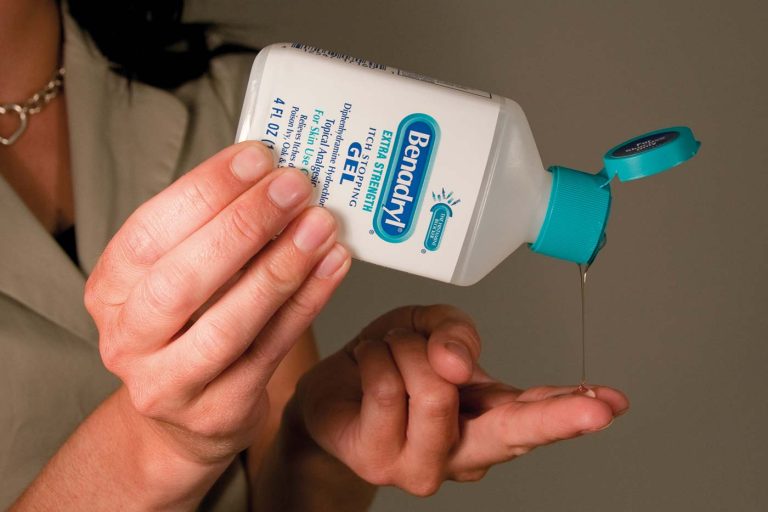
Lighten Up: Why Your Skin Appears Lighter in Areas Where There Was Once Eczema
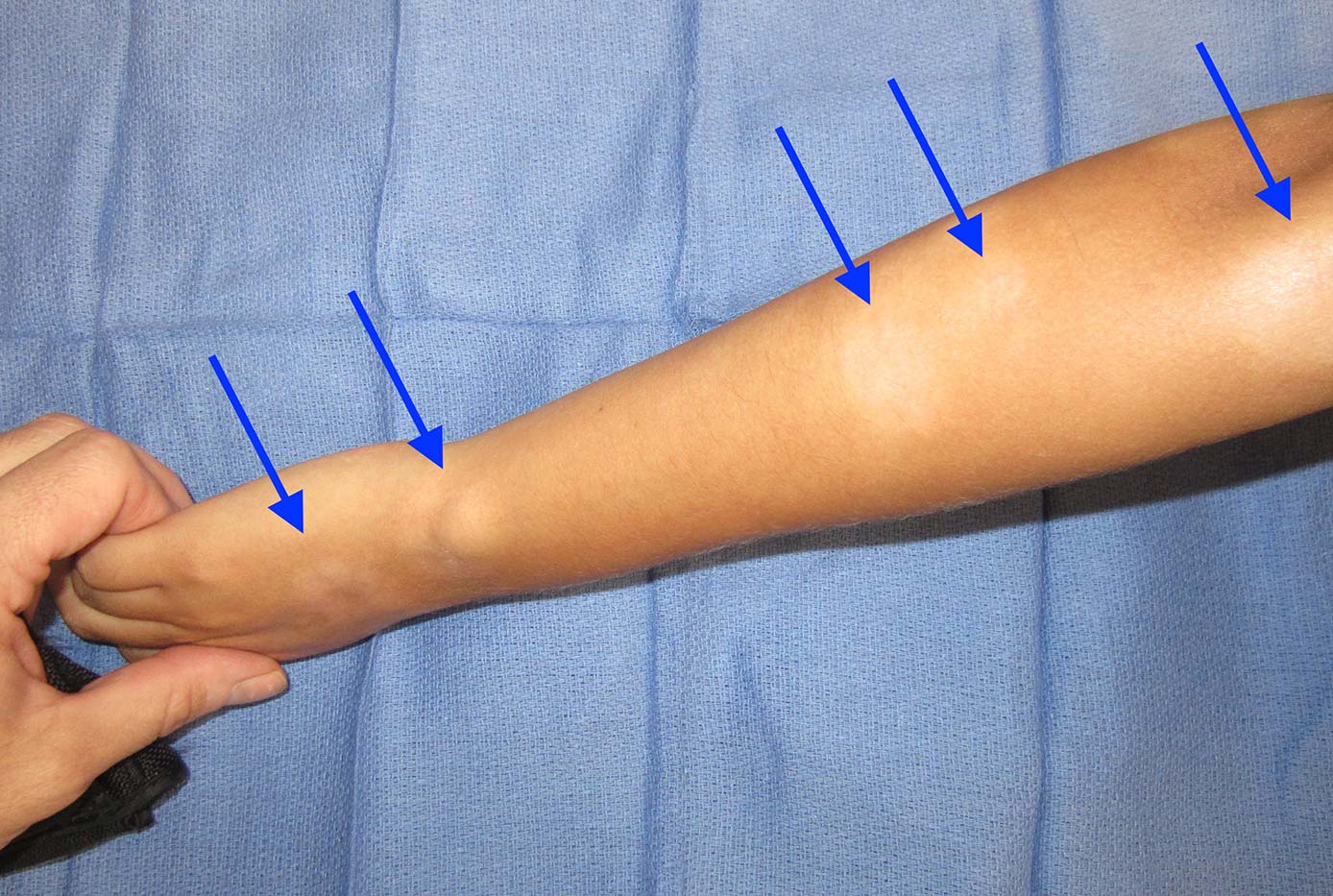
Here Come the Meatheads: The Resurgence of Beef Tallow in Skincare (and Why It Falls Short of Science-based Formulations)

Topical Steroids: What’s in a Name (and a Number)
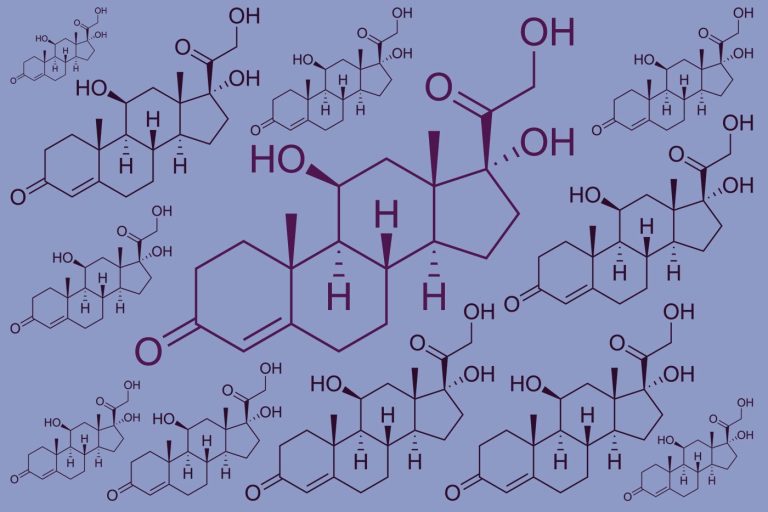
Topical Steroid Withdrawal: Separating FACT from Online FRENZY
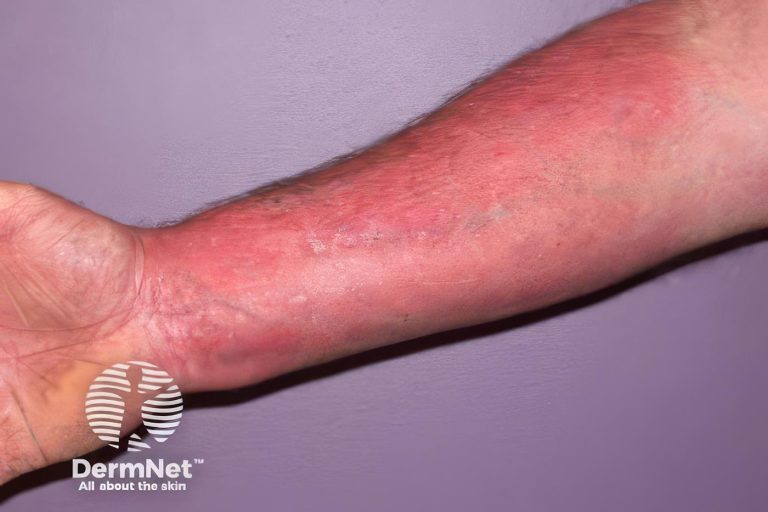
Dodge the “Bloom Doom”: How to Stop Spring Plants and Flowers from Rash-ing Your Kids

What Is Eczema?
Eczema is a chronic condition, meaning it will come and go and will likely be present for some extended period of time (think “months to years,” not “days to weeks”). The word “eczema” itself comes from the Greek word ekzin, which translates to “boil over,” and that is exactly what we see when we examine the skin of affected patients: Dry, red, itchy, oozing, and weeping skin. Affected patients are at increased risk for skin infections from bacteria, such as Staph aureus, and viruses, such as herpes simplex, that can “colonize” (live on) the cracked-open skin, penetrate more deeply to cause infection, and spread quickly over large areas.
Who Does Eczema Affect?
Eczema is common in children of all ethnicities, and in the pediatric population the condition is usually referred to, more specifically, as atopic dermatitis. With proper care and vigilance, most eczema tends to improve throughout childhood – even clearing up through adolescence. However, it is important to understand that eczema may persist into adulthood and may begin at any age.
What Causes Eczema?
The rate of new eczema cases seems to be rising over recent years, and no specific reason for that has yet been determined. Genetics likely play some role, as evidenced by the fact that eczema tends to occur in people who may also have a personal and family history of hay fever, allergies, and asthma. Environmental factors are also involved, though there is controversy around what, specifically, could be the culprit. One theory speculates that allergens, toxins, or pollutants in our local environment may play a direct role. Another consideration, called the “hygiene hypothesis,” posits that we as a society have become “too clean.” In the process of moving from an outdoor, country lifestyle – in which our immune systems would continuously encounter and fight off infections from the outside world – to a more sterile, indoor environment – in which we have artificially removed the natural targets for our immune systems and shifted the focus to attacking ourselves (i.e., allergic and autoimmune disease). Much controversy remains, and the only certainty is that we have not yet identified all of the pieces of the eczema puzzle.
How Do You Treat Eczema?
First, the good news: The vast majority of eczema patients will only have “mild” severity of skin involvement, and a clear action plan for this group of patients has been agreed upon by experts both in the American Academy of Dermatology and the American Academy of Pediatrics (including Dr. K, co-founder of pediadermics).
Because there is no known “cure” for eczema, the focus for most patients must be on managing their condition sustainably over time. This is often the hardest part for families to accept because, quite understandably, no one wants to hear that their child may have a lifelong problem they have to deal with. Additional anxiety comes from the fact that to manage eczema well requires major buy-in and effort from the patients and their families. However, the payoff is worth it! Preventing and treating flares aggressively as they pop up allows you to stay out in front of the eczema, so patients can avoid getting infections and the need for oral medications such as antibiotics or immunosuppressives.
Admittedly, putting effort into something on a daily basis without seeing immediate and tangible results is difficult for even the best patient. But that is exactly the point. For eczema, good clinical management is measured by what you do NOT see: Less flares and more time between flares! The trick is not allowing yourself to become complacent. The eczema is there, bubbling under the surface of the skin – waiting for something to cause it to flare. Daily skin barrier repair with direct and aggressive treatment of flares helps prevent eczema from “boiling over” and is the cornerstone of the American Academy of Dermatology’s and American Academy of Pediatrics’ expert recommendations for eczema care. As the skin heals, it becomes less itchy. Consequently, patients scratch less, sleep better, and go back to being able to concentrate more on what they are doing. Over time and with continued vigilance, the well-managed eczema patient may experience less skin infections, improved school performance, enriched social relationships, and an overall increased quality of life!
You can think of this like a long bike ride to somewhere special: Most of the ride is flat and peddling is pretty easy, but you do still have to expend some energy to keep moving forward (i.e., daily skin barrier maintenance). Eventually, you will have to climb a steep hill (i.e., an eczema flare), and that requires changing gears (i.e., increased effort and focus), but you will pedal through it and eventually get to enjoy some downhill coasting.
Our primary goal as eczema experts is to give you the knowledge and tools you need to eventually reach your destination of clear and healthy skin!
Consequences of Untreated or Poorly-Controlled Eczema
Clinical Complications
- Allergies/asthma comorbidities
- Bacterial colonization
- Behavioral problems/ADHD
- Daytime fatigue
- Impaired cognitive functioning
- Infection
- Itching/scratching
- Pain and burning
- Poor sleep/sleeping disorders
- Skin breakdown
Quality of Life Issues
- Anxiety
- Clingy, dependent behaviors
- Decreased self-esteem
- Depression
- Embarrassment
- Missed school and extracurricular activities
- Poor school/work performance
- Restlessness and agitation
- Social exclusion and discrimination
Financial Burden
- Career modification
- Cleaning products
- Clinic visit copays/deductibles
- ED visits/hospitalizations
- Impact on future job earnings
- Lost productivity/missed work days
- Over-the-counter product expense
- Prescription copays
- Sleep aids
- Transportation costs



